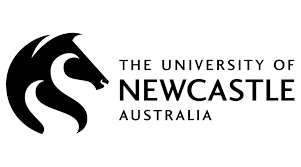Researchers Trace Australian Businesses Envision To Succeed In Refugee Employment
Australian businesses want to employ refugees but don’t know where to start and require support, according to a new study from the University of Newcastle and University of Sydney Business School.
Female worker talks with a male colleague
The researchers worked with 35 employers with little to no experience hiring refugees, examining the role of various forms of incentives and support mechanisms available to them, and actions that could encourage employers to hire from this group of job candidates.
Lead author Professor Betina Szkudlarek said improving the hiring and retention of refugees would have significant financial and social benefits.
“Each year Australia welcomes thousands of refugees, most of whom find it difficult to obtain work befitting their experience and expertise,” Professor Szkudlarek said.
“They want to work, and employers say they are willing to hire them, but our research found a substantial gap between employer intentions and actions. There is an opportunity for employers to play a vital role in improving employment outcomes of people from a refugee background, while expanding their talent pool, and an opportunity for government to remove some of the more significant barriers.
“With an over 100 million forcibly displaced people in the world today, and the growing threats of war, conflict and natural disasters, successful resettlement of refugees has never been more important.”
Employers lack awareness and time
All of the 35 interviewed employers involved in the study expressed some interest in hiring refugee talent, but just five did so over a six-month period.
Professor Szkudlarek said lack of time was a key issue, with most employers not finding any capacity to engage with activities beyond business as usual.
“There seems to exist a gap between awareness and action, where the motivation to recruit refugees rarely turns into hiring if the right resources are not immediately available and the recruitment process is not seamless,” she said.
While there are grants and subsidies available to employers keen to work with refugees, few interviewees dedicated any time to explore those.
As one study participant put it: “The issue is companies are busy doing business. They don’t have the time to navigate all this. They don’t even have the time to look into those files, not even talking about navigating through all the different funds and applications and so on.”
“This sends a clear message to the government that the system of incentives needs to change for it to be actually utilised by employers,” said co-author Dr Eun Su Lee from the University of Newcastle Business School.
How to improve action and bridge the gap
The research team’s new guide to refugee employment highlights a collaborative approach as a key to success. Leveraging refugee support organisations’ know-hows and experience in recruiting and integrating refugee workers successfully into the workplace is one of the most effective means to refugee employment and workforce integration.
As previous research by the team revealed, “there is so much that refugee support organisations can do for employers, ranging from pre-employment screening to cross-cultural training for both the refugees and the welcoming teams, and even ongoing support post-employment.”
The research team also said there is an opportunity for the government to develop a country-wide standard for inclusive recruitment, which would help employers. There is also an opportunity for greater use of procurement targets across industries and states.
Previous research showed that employers who hired refugees were subsequently keen to hire more people from a refugee background.
“This is a clear indication that hiring refugees is good for business as much as it is good for disadvantaged jobseekers who are eager to rebuild their lives in Australia,” she said.
Dr Lee said that the current funding structure rewards service providers and settlement agencies for helping refugees gain employment but does not recognise the importance of the work that goes into training a candidate to become job-ready.
“At times, the model leads to increased competition among various support organisations that all aim to work with the most employable refugees whose path to employment is most straightforward,” Dr Lee said.
“Funding structures that acknowledge and reward organisations that provide training to refugee candidates prior to job placements could encourage partnerships between social enterprises that tend to have more business acumen, and settlement agencies that have direct contact with refugees. This, in turn, could lead to better collaboration and increased placement of refugees into sustainable jobs.”

